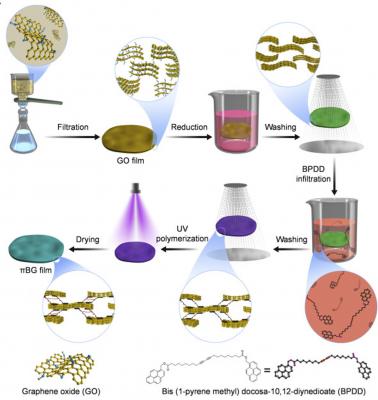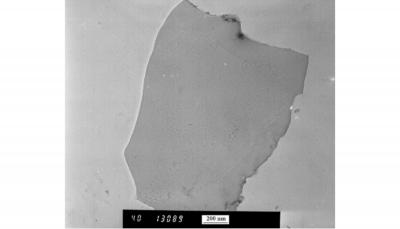by MBF Admin | Jun 2, 2019 | 2D materials, Aerospace, AGM, Angstron Materials, Audio, Band gap, Development, Electronics, Graphene applications, Investment, Products, Research, Technical / Research
Researchers from Purdue University, the University of Michigan and the Huazhong University of Science and Technology have used a technique called “laser shock imprinting” to permanently stress graphene into having a band gap, which could mean it would be...
by MBF Admin | May 31, 2019 | 2D materials, Aerospace, AGM, Angstron Materials, Audio, Development, Energy generation, Graphene applications, Graphene composites, Graphene videos, Investment, Products, Research, Rice University, Technical / Research
Rice University researchers have recently taken the idea of wearable devices that harvest energy from movement to a new level. Prof. James Tour’s lab has adapted laser-induced graphene (LIG) into small, metal-free devices that generate electricity.Putting the...

by MBF Admin | May 19, 2019 | 2D materials, Aerospace, AGM, Angstron Materials, Audio, Development, Graphene applications, Graphene composites, Investment, Products, reduced graphene oxide, Research, Technical / Research
A team of researchers from China has reported a novel strategy to ‘stitch’ together reduced graphene oxide (rGO) nanosheets into ultra-strong, tough, and highly conductive graphene films using only small amounts of cross-linker. They show that the bridging...
by MBF Admin | May 16, 2019 | 2D materials, Aerospace, AGM, Angstron Materials, Audio, Boron Nitride, Cambridge University, Development, Graphene applications, Graphene Ink, Investment, Medicine, Products, Research, Technical / Research, Textiles
Researchers at the University of Cambridge and Jiangnan University in China have developed graphene-enhanced wearable electronic components incorporated directly into fabrics. The devices could be used for flexible circuits, healthcare monitoring, energy conversion,...

by MBF Admin | May 15, 2019 | 2D materials, Aerospace, AGM, Angstron Materials, Audio, Development, Exfoliation, GNPs, Graphene production, Investment, Products, Research, Technical / Research
Researchers at Queen’s University in Kingston, Canada have developed a simple yet effective exfoliation process for producing few-layer graphene nanoplatelets (FL-GNPs). Utilizing this one-step, chemical and solvent-free process the researchers were able to convert...
by MBF Admin | May 14, 2019 | 2D materials, Aerospace, AGM, Angstron Materials, Audio, Development, Graphene applications, Graphene Flagship, Graphene Sensors, Investment, Products, Research, Technical / Research
A research group at the University of Tartu in Estonia has been working on a graphene-enhanced sensor nose for five years and presented their latest prototype in February at the Barcelona World Mobile Congress in the Graphene Pavilion.The prototype does not look...


